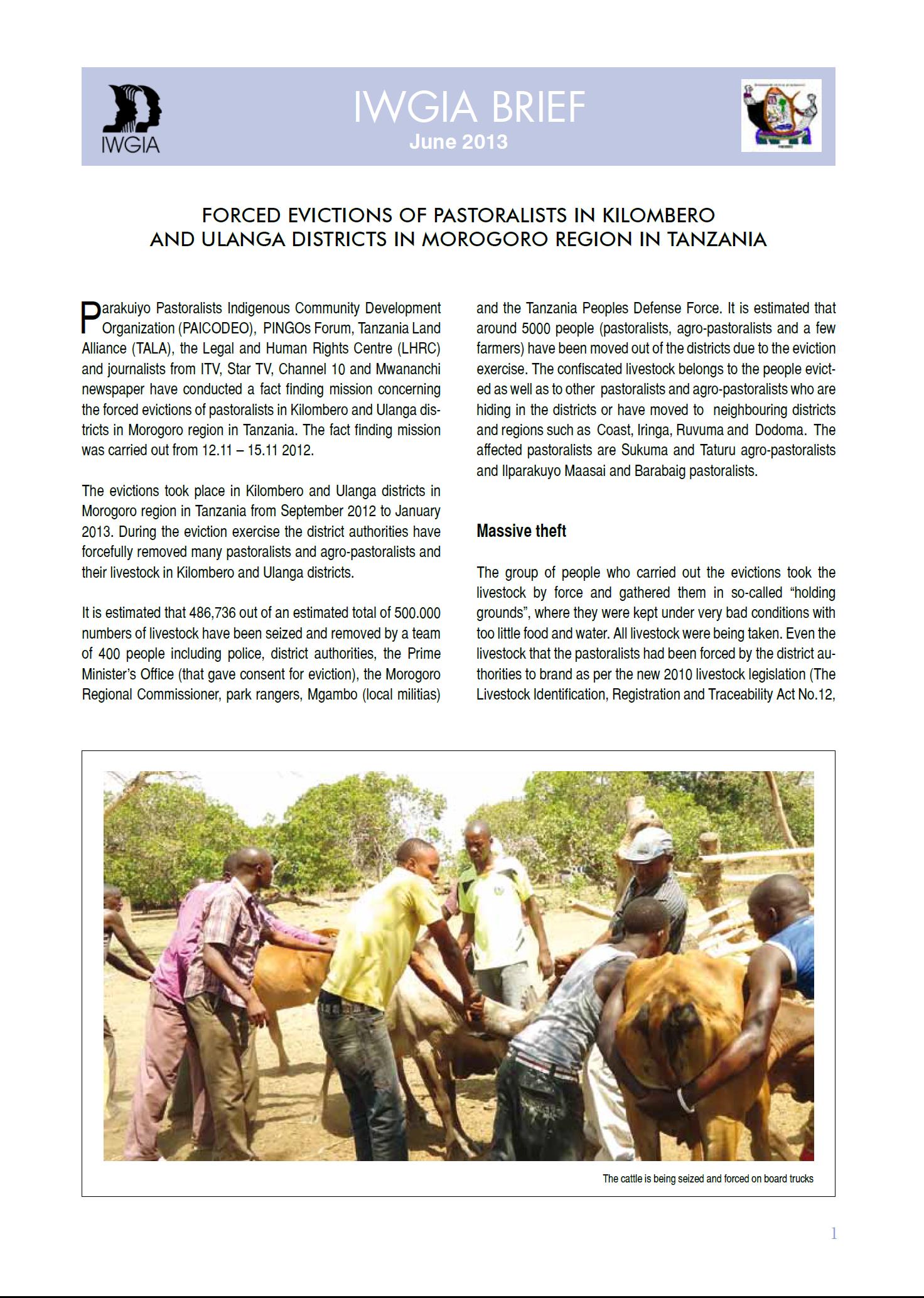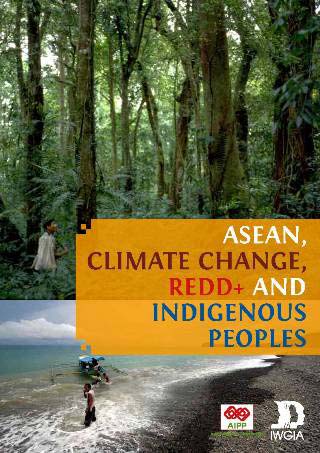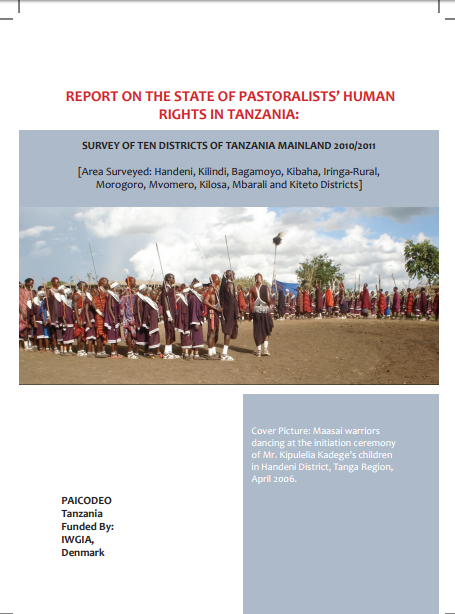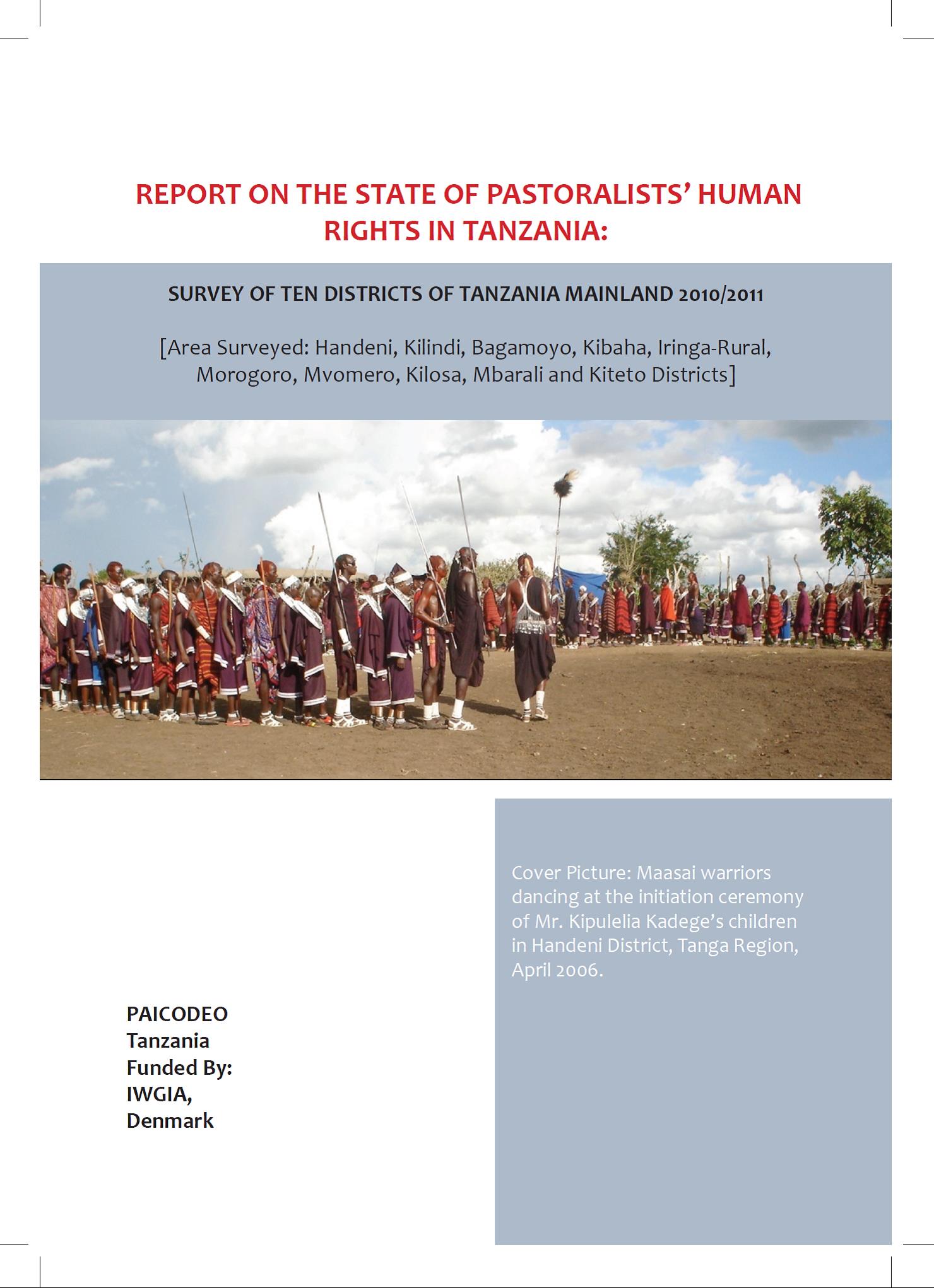Focal point
Location
IWGIA is a non-governmental human rights organisation promoting and defending Indigenous Peoples’ collective and individual rights.
We have supported our partners in this fight for more than 50 years.
We work through a global network of Indigenous Peoples’ organisations and international human rights bodies.
We promote recognition, respect and implementation of Indigenous Peoples’ rights, including the right to self-determination by virtue of which they can freely determine their political status and freely pursue their economic, social and cultural development.
Visit our website for more information and to access all our publications, including our flagship annual book The Indigenous World, a yearly overview of the state of the rights of Indigenous Peoples across individual countries and through various international mechanisms and processes.
Resources
Displaying 41 - 45 of 59Forced Evictions of Pastoralists in Kilombero and Ulanga Disticts in Mgorogoro Region in Tanzania
Parakuiyo Pastoralists Indigenous Community Development Organization (PAICODEO), PINGOs Forum, Tanzania Land Alliance (TALA), the Legal and Human Rights Centre (LHRC) and journalists from ITV, Star TV, Channel 10 and Mwananchi newspaper have conducted a fact finding mission concerning the forced evictions of pastoralists in Kilombero and Ulanga districts in Morogoro region in Tanzania. The fact finding mission was carried out from 12.11 – 15.11 2012.
Forced Evictions of Pastoralists in Kilombero and Ulanga Disticts in Mgorogoro Region in Tanzania
Parakuiyo Pastoralists Indigenous Community Development Organization (PAICODEO), PINGOs Forum, Tanzania Land Alliance (TALA), the Legal and Human Rights Centre (LHRC) and journalists from ITV, Star TV, Channel 10 and Mwananchi newspaper have conducted a fact finding mission concerning the forced evictions of pastoralists in Kilombero and Ulanga districts in Morogoro region in Tanzania. The fact finding mission was carried out from 12.11 – 15.11 2012.
ASEAN, Climate Change, REDD+ and Indigenous Peoples
Briefing paper informing about indigenous peoples in South East Asia, the impact of climate change and the possibilities and threats represented by REDD +. It considers the responses of the ASEAN regarding these global challenges and makes recommendation as to how ASEAN should promote and protect the rights of indigenous peoples in relation to climate change and climate change.
Report on the State of Pastoralists' Human Rights in Tanzania: Survey of Ten Districts of Tanzania Mainland 2010/2011
This report highlights some of the human rights challenges which the Indigenous peoples in Tanzania, particularly Maasai pastoralists, are facing. It also proposes some areas of improvement in order to make Tanzania a better place for everyone, including indigenous pastoralists. It should be noted that Tanzania has more than 120 different ethnic groups, which are Bantu-speaking, Nilo-hamitic (including the Maasai) and Cushitic.
Report on the State of Pastoralists´Human Rights in Tanzania
Pastoralists in Tanzania are suffering from many human rights violations, including forced evictions from their lands. This report gives a comprehensive analysis of the human rights situation of indigenous peoples in Tanzania, and documents cases of human rights violations against Maasai pastoralists during 2011.
The information contained in this report is a result of a comprehensive survey and human rights analysis, which used both primary and secondary data collection methodologies covering a total of 10 districts and 18 villages.






